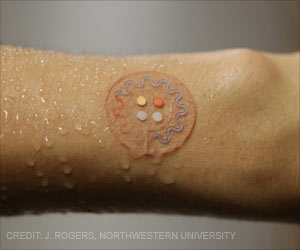Instead of a serving or two of animal protein, including the same quantity of plant protein can reduce the risk of heart disease.
Highlights
- A serving or two of plant protein instead of animal protein or dairy can reduce heart disease risk.
- The heart-protective effect is better if plant proteins are combined with foods rich in fiber, such as oats, barley.
- Those who prefer and adopt a plant-based eating have lower levels of cholesterol and blood pressure, a lower body mass index, and reduced risk of death from heart disease and cancer.
Three Weeks of Plant Protein Instead of Meat, Dairy
Dr. Sievenpiper led a systematic review and meta-analysis of 112 randomized control trials in which people substituted plant proteins for some animal proteins in their diets for at least three weeks.
Dr. Sievenpiper said the review indicated that replacing one to two servings of animal proteins with plant proteins every day - primarily soy, nuts, and pulses (dried peas and beans, lentils and chickpeas) - could reduce the main cholesterol markers by about 5 percent.
"That may not sound like much, but because people in North America eat very little plant protein, there is a real opportunity here to make some small changes to our diets and realize the health benefits," said Dr. Sievenpiper, a clinician scientist with the hospital's Clinical Nutrition and Risk Modification Centre.
"We are seeing a major interest in plant-based diets from the Mediterranean to vegetarian diets in the supermarket and the clinic, and this comprehensive analysis of the highest level of evidence from randomized trials provides us with more confidence that these diets are heart healthy," said Dr. Sievenpiper.
The study looked at the impact of replacing animal protein with plant protein of three key markers for cholesterol: low-density lipoprotein cholesterol (LDL or "bad" cholesterol, which contributes to fatty buildups in arteries and raises the risk for heart attack, stroke and peripheral artery disease); non-high density lipoprotein cholesterol (non-HDL-C, or total cholesterol minus HDL or healthy/good cholesterol) and apolipoprotein B (the proteins in bad cholesterol that clog arteries).
Those who swap processed meats and fatty foods for a mostly plant-based diet are 42 percent less likely to develop heart failure, it was found. A diet which includes whole grains, fish, beans, and dark green leafy plants lead to a heart-healthy lifestyle, scientists from Icahn School of Medicine in New York said.
Reduced Risk of Cancer
Swapping dairy for soy products could substantially reduce a person's risk of getting cancer.
- Among those eating a soy-rich diet, the risk of developing colon cancer is reduced by 44 percent in women and 40 percent in men.
- Women who swap dairy for soy have a 42 percent lesser risk of getting stomach cancer, while men's risk is reduced by 29 percent.
- Cutting out dairy also reduces men's prostate cancer risk by 30 percent.
London-based nutritionist Rob Hobson warns cutting out milk and dairy increases the risk of serious health problems like osteoporosis later in life. He said, “The problem is that milk and dairy products are an important source of several key nutrients. Cutting out on the foods reduces the intake of calcium and iodine – raising the risk of deficiencies.” Dairy products are also a useful source of iodine – a micronutrient important for women during pregnancy and young children that contributes to growth and brain development. Completely avoiding dairy could be a risk for other deficiencies.
Reference
- Dr. John Sievenpiper et al., ‘New study suggests health benefits of swapping animal proteins for plant proteins.’Journal of the American Heart Association. (2017).
Source-Medindia
















